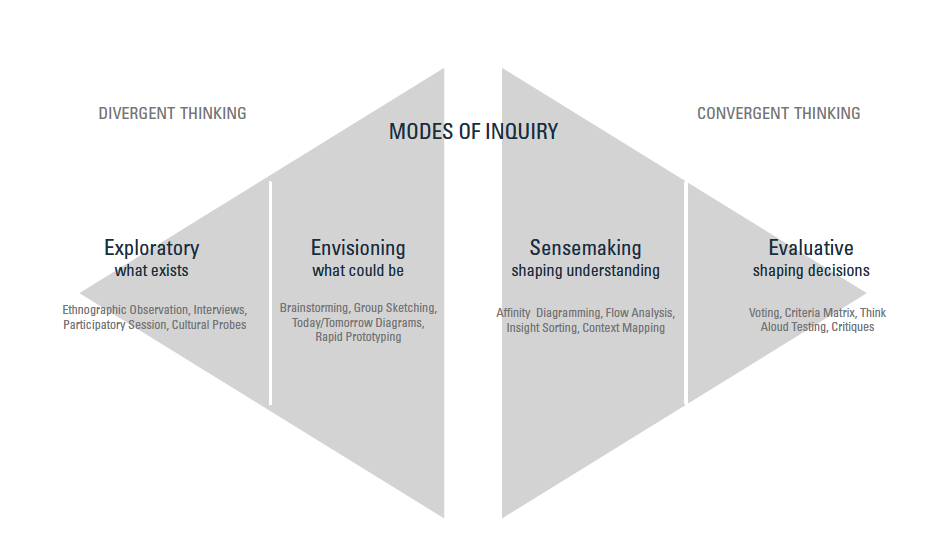Research Principles
DORIS conducts research following participatory action research methodology. Action research aims to develop practical and relevant solutions to identified problems and opportunities. Action research is an established methodology in the social sciences and, in the context of design, may be referred to as “participatory design.”
Sanders defines participatory design as “an approach to design that attempts to actively involve the people who are being served through design in the process to help ensure that the designed product/service meets their needs.”
Unlike other user research approaches, which establish the designer as the expert and the user as a reactive subject, participatory design calls for actively including users and other stakeholders as partners in all stages of the design process. This approach strives to ensure that the challenges identified and solutions formulated will be relevant and appropriate to the people in the contexts affected.
This content has been adapted from Maria Meschi's MFA thesis.
Methods
Successful research uses methods that encompass four modes of inquiry as outlined by Collabo Creative:
- Exploratory methods examine the current reality.
- Envisioning methods invite participants to imagine a desirable future.
- Sensemaking methods create a plausible understanding of a system.
- Evaluative methods assess ideas, solutions, models, and other outcomes based on criteria.
While this model assigns methods to each mode, a single method (e.g., interview) can include individual questions that fall into different modes of inquiry. For example, "How does your job role affect the type of space that you need?" is an exploratory question because it is interested in what is. In contrast, "What tools, spaces, or resources would make the office a better place to work?" asks participants to envision what could be.
When building engagements for research participants, use the modes of inquiry to help identify the purpose of the question, method, or activity.
Works Referenced
Christopher Crouch and Pearce, Jane, Doing Research in Design (London: Bloomsbury Academic, 2014), 144.
Elizabeth B.-N Sanders and Pieter Jan Stappers, Convivial Toolbox : Generative Research for the Front End of Design. (Amsterdam: BIS, 2012), 19.
Sanders and Stappers, Co-Creation and the New Landscapes of Design.
Napier, Pamela, and Terri Wada. "Designing Design Thinking Curriculum: A Framework For Shaping a Participatory, Human-Centered Design Course." LearnxDesign Proceedings of the 3rd International Conference for Design Education Researchers, 2015, Chicago, Illinois, edited by VandeZane, Robin, Erik Bohemia, and Ingvild Digranes, Aalto University, 26 June 2015.


No comments to display
No comments to display